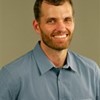- GMHC
-
Getting Started
-
Wondering where to start?
-
 We're your guide. What can this community do for you? Learn more
We're your guide. What can this community do for you? Learn more
-
-
Mobilization
-
Heed the call!
-
 Community Challenges Activate your journey to the field! Read Article
Community Challenges Activate your journey to the field! Read Article -
 Search Jobs Community Job Board Read Article
Search Jobs Community Job Board Read Article
-
-
Resources
-
Learn & Connect
-
 Upcoming Events Learn from the experts in healthcare missions & connect with others. Register Now
Upcoming Events Learn from the experts in healthcare missions & connect with others. Register Now
-
-
Community
-
Connect With the Community
-
 Member Lounge We're all in this together! Join the conversation.
Member Lounge We're all in this together! Join the conversation.
-
- Store
- Log In
Welcome to the MedicalMissions.com Podcast
This is a series of sessions from leading experts in healthcare missions.
Selecting an Agency: Panel of Doctors and Nurses
 by John McVay
by John McVay
- Church Planting
- Community Development
- Prayer
- and 3 more...
This session will share answers on how to select a missions agency. Each person who attends will receive a 3 x 5 card when they enter the room. The moderator John McVay will group and select questions, direct them to appropriate panelists, and receive questions from the floor. Probable topics discussed from questions expected are: agency focus, doctrine, finances, services, leadership, locations, compatibility.
Partnerships - why we shouldn't do it alone
 by Jaime Saint
by Jaime Saint
- Education
- Equipping Indigenous People
- Persecuted Church
- and 2 more...
In the mission field today, there is no shortage of work that needs to be done. Small minded thinking tells us that we are the only ones trying to accomplish a particular mission or that we are the only ones that can do it right. By working together as the body of Christ, we can accomplish more together than we can alone.
Sharing Your Vision Effectively
 by Jack Webster
by Jack Webster
- Church Planting
- Community Development
- Economic Development
- and 4 more...
What can we learn from God's word about effectively sharing a vision? What can we learn from recent evidence of ministries who have demonstrated an ability to effectively share a vision? What gets in the way of effectively sharing a vision?
Effective Fund-Raising for Short-term or Long-Term
 by Andy Read
by Andy Read
- Church Planting
- Community Development
- Disaster Relief
- and 7 more...
Fund-Raising for Short-term or Long-Term Missions
Want to know the key to raising resources for a life-time of ministry or for a short-term mission trip – its Effective Ministry Partnership Development (MPD). We’ll address how correct thinking, biblical principles and practical principles are the key. This session will explain “why people give,” “how to effectively gain their support and involvement,” “ways to grow your list of prospects” and “what the basis is for successful long-term financial partnership.” Anyone wanting to increase the involvement of others in the ministry and increase their financial partnership should attend this session.
Want to know the key to raising resources for a life-time of ministry or for a short-term mission trip – its Effective Ministry Partnership Development (MPD). We’ll address how correct thinking, biblical principles and practical principles are the key. This session will explain “why people give,” “how to effectively gain their support and involvement,” “ways to grow your list of prospects” and “what the basis is for successful long-term financial partnership.” Anyone wanting to increase the involvement of others in the ministry and increase their financial partnership should attend this session.
Compassion - Foundation for Whole Person Care
- Anesthesia
- Associate Degree and Diploma Nurses
- Cardiothoracic
- and 52 more...
Scientific and technical advances are often seen as the key to best medical practice and have become the aspiration of both developed and developing countries. But to focus only on biological processes is to ignore other powerful influences on the causes and management of illness. A solely mechanistic approach fails to deal with the basic requirement of patients to be cared for as people - in body, mind and spirit.
This session will explore the broader practice of patient care defined by the phrase ‘whole person medicine’. Beginning with a biblical basis for this approach, and taking evidence from history and research, we will examine its core component of compassion including its practical application in healthcare delivery and teaching.
This session will explore the broader practice of patient care defined by the phrase ‘whole person medicine’. Beginning with a biblical basis for this approach, and taking evidence from history and research, we will examine its core component of compassion including its practical application in healthcare delivery and teaching.



